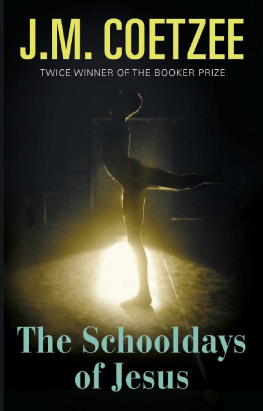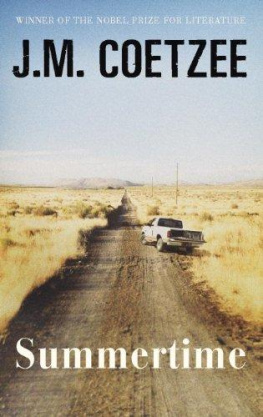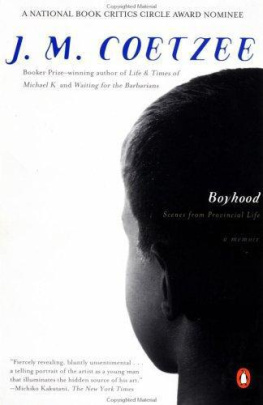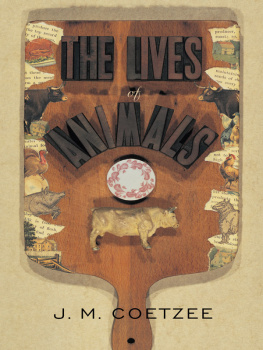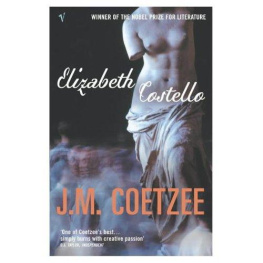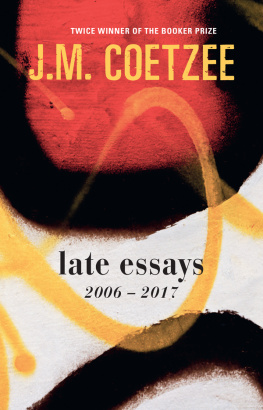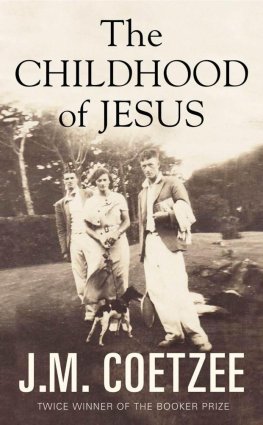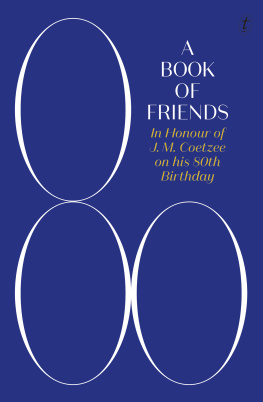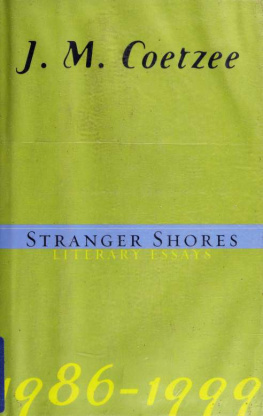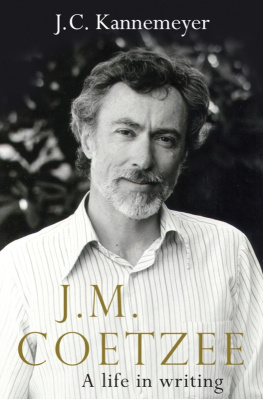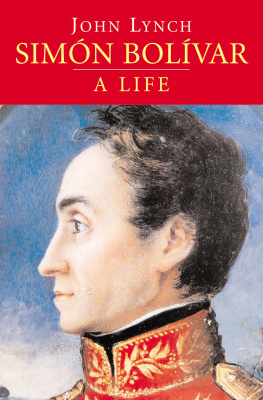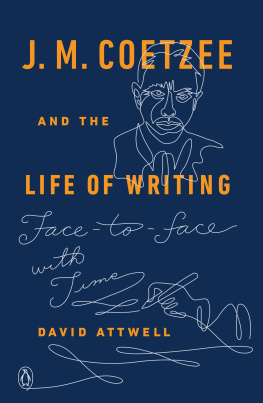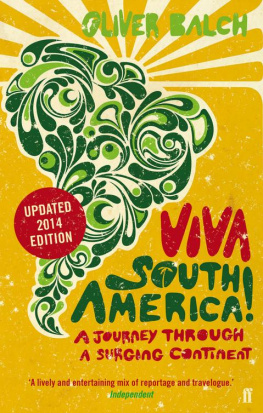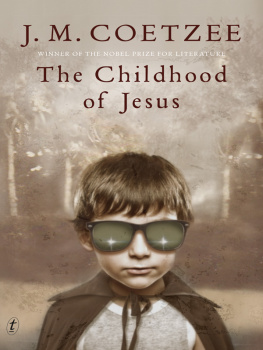Contents
About the Book
LONGLISTED FOR THE MAN BOOKER PRIZE 2016
When you travel across the ocean on a boat, all your memories are washed away and you start a completely new life. That is how it is. There is no before. There is no history. The boat docks at the harbour and we climb down the gangplank and we are plunged into the here and now. Time begins.
Davd is the small boy who is always asking questions. Simn and Ins take care of him in their new town Estrella. He is learning the language; he has begun to make friends. He has the big dog Bolvar to watch over him. But hell be seven soon and he should be at school. And so, Davd is enrolled in the Academy of Dance. Its here, in his new golden dancing slippers, that he learns how to call down the numbers from the sky. But its here too that he will make troubling discoveries about what grown-ups are capable of.
In this mesmerising allegorical tale, Coetzee deftly grapples with the big questions of growing up, of what it means to be a parent, the constant battle between intellect and emotion, and how we choose to live our lives.
About the Author
J. M. Coetzees work includes Waiting for the Barbarians, Life & Times of Michael K, Boyhood, Youth, Disgrace, Summertime and The Childhood of Jesus. He was the first author to win the Booker Prize twice and was awarded the Nobel Prize for Literature in 2003.
ALSO BY J. M. COETZEE
Dusklands
In the Heart of the Country
Waiting for the Barbarians
Life & Times of Michael K
Foe
White Writing
Age of Iron
Doubling the Point: Essays and Interviews
The Master of Petersburg
Giving Offense
Boyhood
The Lives of Animals
Disgrace
Stranger Shores: Essays 19861999
Youth
Elizabeth Costello
Slow Man
Inner Workings
Diary of a Bad Year
Summertime
Scenes from Provincial Life
The Childhood of Jesus
(with Paul Auster) Here and Now: Letters, 20082011
(with Arabella Kurtz) The Good Story: Exchanges on Truth, Fiction and Psychotherapy
Algunos dicen: Nunca segundas partes fueron buenas.
Don Quixote II.4
Chapter 1
He was expecting Estrella to be bigger. On the map it shows up as a dot of the same size as Novilla. But whereas Novilla was a city, Estrella is no more than a sprawling provincial town set in a countryside of hills and fields and orchards, with a sluggish river meandering through it.
Will a new life be possible in Estrella? In Novilla he had been able to rely on the Office of Relocations to arrange accommodation. Will he and Ins and the boy be able to find a home here? The Office of Relocations is beneficent, it is the very embodiment of beneficence of an impersonal variety; but will its beneficence extend to fugitives from the law?
Juan, the hitchhiker who joined them on the road to Estrella, has suggested that they find work on one of the farms. Farmers always need farmhands, he says. The larger farms even have dormitories for seasonal workers. If it isnt orange season it is apple season; if it isnt apple season it is grape season. Estrella and its surrounds are a veritable cornucopia. He can direct them, if they wish, to a farm where friends of his once worked.
He exchanges looks with Ins. Should they follow Juans advice? Money is not a consideration, he has plenty of money in his pocket, they could easily stay at a hotel. But if the authorities from Novilla are really pursuing them, then perhaps they would be better off among the nameless transients.
Yes, says Ins. Let us go to this farm. We have been cooped up in the car long enough. Bolvar needs a run.
I feel the same way, says he, Simn. However, a farm is not a holiday camp. Are you ready, Ins, to spend all day picking fruit under a hot sun?
I will do my share, says Ins. Neither less nor more.
Can I pick fruit too? asks the boy.
Unfortunately no, not you, says Juan. That would be against the law. That would be child labour.
I dont mind being child labour, says the boy.
I am sure the farmer will let you pick fruit, says he, Simn. But not too much. Not enough to turn it into labour.
They drive through Estrella, following the main street. Juan points out the marketplace, the administrative buildings, the modest museum and art gallery. They cross a bridge, leave the town behind, and follow the course of the river until they come in sight of an imposing house on the hillside. That is the farm I had in mind, says Juan. That is where my friends found work. The refugio is at the back. It looks dreary, but its actually quite comfortable.
The refugio is made up of two long galvanized-iron sheds linked by a covered passage; to one side is an ablution block. He parks the car. No one emerges to greet them save a grizzled, stiff-legged dog who, from the limit of his chain, growls at them, baring yellowed fangs.
Bolvar unfolds himself and slides out of the car. From a distance he inspects the foreign dog, then decides to ignore him.
The boy dashes into the sheds, re-emerges. Theyve got double bunks! he shouts. Can I have a top bunk? Please!
Now a large woman wearing a red apron over a loose cotton frock appears from the rear of the farmhouse and waddles down the path toward them. Good day, good day! she calls out. She examines the laden car. Have you come a long way?
Yes, a long way. We wondered if you can do with some extra hands.
We can always do with more hands. Many hands make light work isnt that what the books say?
It will be just two of us, my wife and I. Our friend here has commitments of his own. This is our boy, his name is Davd. And this is Bolvar. Will there be a place for Bolvar? He is part of the family. We go nowhere without him.
Bolvar is his real name, says the boy. He is an Alsatian.
Bolvar. Thats a nice name, says the woman. Unusual. I am sure there will be a place for him as long he behaves himself and is content to eat scraps and doesnt get into fights or chase the chickens. The workers are out in the orchards right now, but let me show you the sleeping quarters. On the left side the gentlemen, on the right side the ladies. No family rooms, Im afraid.
I am going to be on the gentlemens side, says the boy. Simn says I can have a top bunk. Simn is not my father.
Do as you please, young man. There is plenty of space. The others will be back
Simn is not my real father and Davd is not my real name. Do you want to know my real name?
The woman casts Ins a puzzled look, which Ins pretends not to notice.
We were playing a game in the car, he, Simn, intervenes. To pass the time. We were trying out new names for ourselves.
The woman shrugs. The others will be back for lunch soon, then you can introduce yourselves. The pay is twenty reales a day, the same for men and for women. The day is from sunup until sundown, with a two-hour break at midday. On the seventh day we rest. That is the natural order, that is the order we follow. As for meals, we supply the foodstuffs and you do the cooking. Are you happy with the terms? Do you think you can manage? Have you done picking before? No? You will soon learn, it is not a high art. Do you have hats? You will need hats, the sun can be quite fierce. What else can I tell you? You can always find me in the big house. Roberta is my name.
Roberta, pleased to meet you. I am Simn and this is Ins and this is Juan, our guide, whom I am going to drive back to town.

